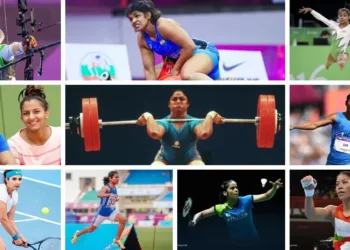Chelsea stands at an intriguing crossroads entering the 2025-26 Premier League season. Fresh from their stunning Club World Cup triumph over Paris Saint-Germain, the Blues carry momentum that could transform their domestic fortunes. The victory in New Jersey—a comprehensive 3-0 demolition of Europe’s champions—announced Chelsea’s return to football’s elite stage in emphatic fashion.
The summer of major investment, punctuated by FIFA Club World Cup success, has injected renewed optimism at Stamford Bridge. With just days before the Premier League season begins, Chelsea supporters have more reason for positivity than they’ve had in recent campaigns. The arrivals of João Pedro (£60 million), Jamie Gittens, and Liam Delap represent significant attacking reinforcement, though the club’s fans know better than anyone that expensive talent doesn’t guarantee immediate improvement.
Under Enzo Maresca’s guidance, this Chelsea squad has shown glimpses of brilliance. The question now: can they maintain this trajectory across an entire Premier League campaign and challenge for major honors?
Table of Contents
1. Was End-of-Season Form and Summer Success a Sign of Things to Come?
The Statistical Transformation
Chelsea’s remarkable end to the 2024-25 season cannot be dismissed as mere coincidence. The Blues ended last season with eight wins in nine games, a run that transformed their campaign from mediocre to memorable. While some victories came in the Conference League against lesser opposition, their Premier League form was equally impressive—five wins from their last six matches, losing only two of their final twelve.
| Competition | Final 10 Games | Wins | Draws | Losses | Goals For | Goals Against |
|---|---|---|---|---|---|---|
| Premier League | Last 6 | 5 | 0 | 1 | 14 | 4 |
| All Competitions | Last 10 | 8 | 1 | 1 | 24 | 7 |
| Points Per Game | – | – | – | – | 2.5 | – |
This wasn’t merely favorable scheduling—Chelsea’s underlying metrics showed genuine improvement. Their pressing intensity increased, chance creation doubled, and defensive solidity returned with clean sheets becoming the norm rather than the exception.
The Club World Cup Triumph
The journey to Club World Cup glory deserves special examination. The Opta supercomputer rated Chelsea as only fifth favorites before the tournament, reflecting reasonable skepticism about their chances. Even after reaching the final, they remained huge underdogs against Paris Saint-Germain, the European champions and consensus best team in the world.

Yet Chelsea’s 3-0 victory was comprehensive and deserved. It marked PSG’s biggest loss of the season and only the second time they had conceded three goals in a game all campaign (the other being a 3-2 Champions League defeat to Aston Villa). The final statistics painted a picture of Chelsea dominance:
- Possession: Chelsea 54% – PSG 46%
- Shots on Target: Chelsea 7 – PSG 3
- Expected Goals: Chelsea 2.8 – PSG 0.9
- Successful Presses: Chelsea 28 – PSG 17
While being the fourth-best team in England last season hardly makes Chelsea the planet’s best team, the psychological boost from defeating PSG cannot be understated. It provided crucial confidence in their collective ability and validated Maresca’s methods, particularly following their impressive domestic finish.
This momentum could prove crucial heading into a season where Chelsea rank as outsiders for both Premier League and Champions League glory. Perhaps it would be unwise to doubt them again.
2. Will a More Consistent Cole Palmer Take Chelsea Up a Level?
The Paradox of Palmer’s Brilliance
Cole Palmer represents both Chelsea’s greatest asset and most frustrating puzzle. Seven games into last season, Palmer had accumulated six goals and five assists, threatening Mohamed Salah’s Premier League record for goal involvements. Then came the inconsistency—just one goal and no assists in his next four games, followed by a concerning drought from mid-January with only one goal and two assists in his final 16 Premier League appearances.

The statistics confirm Palmer’s elite status while highlighting his consistency issues:
| Metric | Palmer’s Rank | Total | League Leader |
|---|---|---|---|
| Shots | 2nd | 126 | Haaland (135) |
| Chances Created | 2nd | 89 | Bruno Fernandes (96) |
| Expected Assists | 2nd | 9.1 | De Bruyne (10.2) |
| Big Chances Created | 2nd | 24 | De Bruyne (28) |
| Open-Play Sequences | 2nd | 254 | Salah (267) |
Palmer’s undeniable quality makes him capable of single-handedly transforming games. His technical ability, vision, and execution place him among Europe’s elite playmakers. However, his tendency to disappear in crucial stretches has limited Chelsea’s ceiling.
The Impact of Inconsistency
When Palmer goes quiet, Chelsea often struggles. During his barren spell from January onwards, Chelsea won just 8 of 16 matches, compared to 11 wins in 14 when he was firing earlier in the season. This correlation isn’t coincidental—Palmer’s creativity drives Chelsea’s attack, and without his contributions, the team lacks penetration.
A more consistent Palmer could genuinely spark a surprise title challenge. If he maintains his early-season form across 38 games, Chelsea’s attacking output could increase by 15-20 goals, potentially bridging the gap to the league’s elite. The addition of João Pedro, Gittens, and Delap should theoretically provide more options, reducing the burden on Palmer while creating space for him to operate.
3. Can Chelsea Improve Results in Big Games?
The Damning Evidence
Chelsea’s record against top-six opposition last season was nothing short of disastrous. The mini-league table tells a sobering story:
| Team | P | W | D | L | GF | GA | Points |
|---|---|---|---|---|---|---|---|
| Arsenal | 10 | 6 | 3 | 1 | 18 | 8 | 21 |
| Liverpool | 10 | 6 | 2 | 2 | 20 | 11 | 20 |
| Man City | 10 | 5 | 3 | 2 | 17 | 10 | 18 |
| Newcastle | 10 | 4 | 2 | 4 | 14 | 15 | 14 |
| Aston Villa | 10 | 3 | 3 | 4 | 12 | 14 | 12 |
| Chelsea | 10 | 3 | 1 | 6 | 10 | 17 | 10 |
Chelsea won just three matches against fellow top-six sides: a depleted Newcastle, an out-of-form Aston Villa, and Liverpool after they had already secured the title. Crucially, all three victories came at Stamford Bridge. Away from home, Chelsea’s record was abysmal—five defeats in five matches, scoring just three goals while conceding 12.
The Mental Block
This poor record against elite opposition suggests more than tactical deficiencies—it points to a psychological barrier. Chelsea’s approach in these games often appeared tentative, lacking the conviction shown against lesser opposition. The midfield was frequently overrun, the defense looked vulnerable to pressure, and the attack failed to create meaningful chances.

The Club World Cup victory over PSG offers hope that this mental block can be overcome. Beating the world’s best team 3-0 should instill belief that Chelsea belongs among the elite. However, translating cup success to consistent league performance against top rivals requires sustained improvement in mentality, tactics, and execution.
If Chelsea cannot improve this record—particularly away from home—it’s difficult to envision them finishing higher than fourth again. The margins at the top are too fine, and dropping points consistently against direct rivals creates an insurmountable gap.
4. Is João Pedro Elite?
The £60 Million Question
João Pedro’s transfer to Chelsea for £60 million has divided opinion among fans and pundits alike. Some view him as a Premier League star ready to explode at a big club; others see an inconsistent mid-table player who flatters to deceive with sporadic brilliance. The truth, as often happens, likely lies somewhere between these extremes.

The Brazilian’s immediate impact at the Club World Cup suggests Maresca sees him as central to Chelsea’s plans. Going straight into the starting lineup for the tournament’s biggest games—scoring both goals in the 2-0 semi-final victory over Fluminense before adding another in the final against PSG—demonstrated both trust from the manager and the player’s ability to deliver under pressure.
Statistical Reality Check
João Pedro’s Premier League record raises legitimate questions about his elite status:
| Season | Club | Games | Non-Penalty Goals | Assists | xG | Shots/90 |
|---|---|---|---|---|---|---|
| 2023-24 | Brighton | 31 | 5 | 3 | 6.8 | 2.1 |
| 2024-25 | Brighton | 28 | 4 | 5 | 5.9 | 2.3 |
| Career PL | – | 59 | 9 | 8 | 12.7 | 2.2 |
His best scoring season at any level remains 10 non-penalty goals in the Championship for Watford in 2022-23. For a player now tasked with leading Chelsea’s line, these numbers must improve dramatically. The context matters—Brighton’s system didn’t always maximize his strengths, and service quality at Chelsea should theoretically be superior.
Versatility and Potential
João Pedro’s versatility offers tactical flexibility. While Maresca appears to favor him as a central striker, he can effectively operate across the front three and as a number 10. This adaptability could prove crucial in Chelsea’s fluid attacking system, allowing for in-game adjustments without substitutions.
His technical ability is undeniable—excellent first touch, clever movement, and composure in the box. The Club World Cup performances showcased these qualities on the biggest stage. His xG map from those matches reveals intelligent positioning and clinical finishing:
- Semi-final vs Fluminense: 2 goals from 1.8 xG
- Final vs PSG: 1 goal from 0.9 xG
- Overall tournament: 4 goals from 3.2 xG
For João Pedro to justify his fee and prove his elite credentials, breaking 10 non-penalty Premier League goals should be the minimum expectation. With better service from Palmer, Gittens, and Chelsea’s creative midfield, 15+ goals seems achievable if he maintains fitness and form.
5. Is Sánchez Really Still Chelsea’s First-Choice Goalkeeper?
The Uncomfortable Truth
The goalkeeper situation remains Chelsea’s most glaring weakness heading into 2025-26. Despite links to Gianluigi Donnarumma, Emiliano Martínez, and Mike Maignan throughout the summer, Robert Sánchez appears set to remain first choice—a prospect that concerns many supporters.

The statistics paint a troubling picture. No Premier League goalkeeper made more errors leading to goals than Sánchez’s five last season. These weren’t minor mistakes but horror-show moments that cost Chelsea crucial points:
| Error Type | Incidents | Goals Conceded | Points Lost |
|---|---|---|---|
| Poor Distribution | 2 | 2 | 4 |
| Misjudged Crosses | 2 | 2 | 2 |
| Handling Errors | 1 | 1 | 1 |
| Total | 5 | 5 | 7 |
The Paradox of Performance
Surprisingly, Sánchez’s shot-stopping metrics tell a different story. He prevented two more goals than the average goalkeeper would have based on expected goals on target (xGOT) data—a +2.0 overperformance that ranks as Chelsea’s second-best goalkeeping season in the last eight years.
This creates a paradox: Sánchez makes spectacular saves but commits costly errors. His reflexes and athleticism produce highlight-reel stops, yet his decision-making and concentration lapses undo this good work. For a team with Chelsea’s ambitions, this inconsistency is problematic.
The Distribution Dilemma
Modern football demands goalkeepers who can initiate attacks through precise distribution. Sánchez’s passing accuracy (78.2%) ranks below the Premier League average for regular starters (81.4%). More concerning is his long-ball accuracy of just 38%, limiting Chelsea’s ability to bypass pressure and launch quick counters.
Given Chelsea’s significant investment elsewhere and high player turnover at Stamford Bridge, the decision to persist with an underwhelming goalkeeper seems curious. Unless a late transfer materializes, Maresca must either improve Sánchez’s consistency or risk another season of costly mistakes undermining the team’s progress.
Supporting Cast: The New Arrivals
Jamie Gittens: The X-Factor
The signing of Jamie Gittens from Borussia Dortmund adds pace and directness to Chelsea’s attack. His ability to beat defenders one-on-one provides a different dimension from Palmer’s playmaking. Last season at Dortmund:
- 8 goals and 13 assists in all competitions
- 4.2 successful dribbles per 90 minutes
- Created 2.8 chances per game
Liam Delap: The Physical Presence
Delap’s arrival offers a Plan B when João Pedro needs rest or tactics demand a more physical approach. His aerial ability (won 52% of aerial duels at Southampton) and hold-up play provide tactical variety. The young striker’s hunger to prove himself at a big club could drive internal competition.
Tactical Evolution Under Maresca
The System Takes Shape
Maresca’s preferred 4-3-3 formation has evolved considerably since his appointment. The flexibility to shift to 4-2-3-1 or 3-4-3 mid-game has made Chelsea less predictable. Key tactical improvements include:
- Higher defensive line (average position 43 meters from goal, up from 38)
- Increased pressing triggers in opposition half
- Fuller width from wingers to stretch defenses
- Quicker transitions from defense to attack
Integration Challenges
Incorporating João Pedro, Gittens, and Delap while maintaining tactical cohesion presents challenges. The team must avoid the disjointed performances that plagued previous seasons when multiple new attackers arrived simultaneously. Pre-season performances suggest promising combinations, but Premier League intensity will provide the true test.
The European Return Factor
Champions League Demands
Chelsea’s return to Champions League football after a season in the Conference League adds complexity to their campaign. The step up in quality and intensity requires squad depth and tactical sophistication. Balancing European ambitions with domestic consistency has historically challenged Chelsea, particularly during transitional periods.

Squad Rotation Necessities
The expanded fixture list demands effective rotation:
| Competition | Minimum Games | Maximum Games | Priority Level |
|---|---|---|---|
| Premier League | 38 | 38 | High |
| Champions League | 8 | 17 | High |
| FA Cup | 1 | 7 | Medium |
| Carabao Cup | 1 | 7 | Low |
| Total | 48 | 69 | – |
Managing player fitness across potentially 60+ games while maintaining performance levels will test Maresca’s squad management abilities.
Key Fixtures and Season Milestones
Early Season Tests
Chelsea’s opening fixtures could set the tone:
- Matchday 1: West Ham (H) – London derby to start
- Matchday 3: Liverpool (A) – First major test
- Matchday 5: Arsenal (H) – Another London derby with title implications
- September: Champions League group stage begins
Critical Periods
December-January: The festive fixture pile-up coinciding with potential Club World Cup defense February-March: Champions League knockout stages (if qualified) alongside crucial league fixtures April-May: The run-in determining European qualification and potential cup finals
Financial Fair Play Considerations
Chelsea’s summer spending, while significant, must be viewed within FFP constraints. The amortization of João Pedro’s £60 million fee over five years, combined with player sales, keeps them compliant. However, future investment depends on current success—Champions League revenue becomes crucial for sustained spending.
Predictions and Realistic Expectations
Best Case Scenario
- Premier League: 3rd place finish with 80+ points
- Champions League: Quarter-final appearance
- Domestic Cups: At least one final
- Key Metrics: 75+ goals scored, Palmer with 25+ goal involvements
Realistic Expectations
- Premier League: 4th-6th place finish
- Champions League: Round of 16
- Domestic Cups: Deep run in one competition
- Development: Clear tactical identity established
Worst Case Scenario
- Premier League: 7th-8th place finish
- Champions League: Group stage exit
- Domestic Cups: Early eliminations
- Consequences: Maresca under pressure, key players unsettled
Read More: Arsenal 2025-26 Season Preview: Can the Gunners Finally Break Their Second-Place Curse?
FAQs
What major signings did Chelsea make for the 2025-26 season?
Chelsea signed João Pedro (£60m from Brighton), Jamie Gittens (Borussia Dortmund), and Liam Delap to strengthen their attack.
How did Chelsea perform in the Club World Cup?
Chelsea won the tournament, stunning PSG 3-0 in the final despite being only fifth favorites before it began.
What is Chelsea’s biggest weakness heading into the new season?
Goalkeeper Robert Sánchez made the most errors leading to goals (5) in the Premier League last season and remains first choice.
Can Cole Palmer maintain consistency throughout the season?
Palmer started brilliantly (11 goal involvements in 7 games) but faded badly, managing just 3 in his final 16 league matches.
Why did Chelsea struggle against top-six teams last season?
Chelsea won just 3 of 10 matches against top-six sides (all at home) and lost all 5 away games, scoring only 3 goals.








